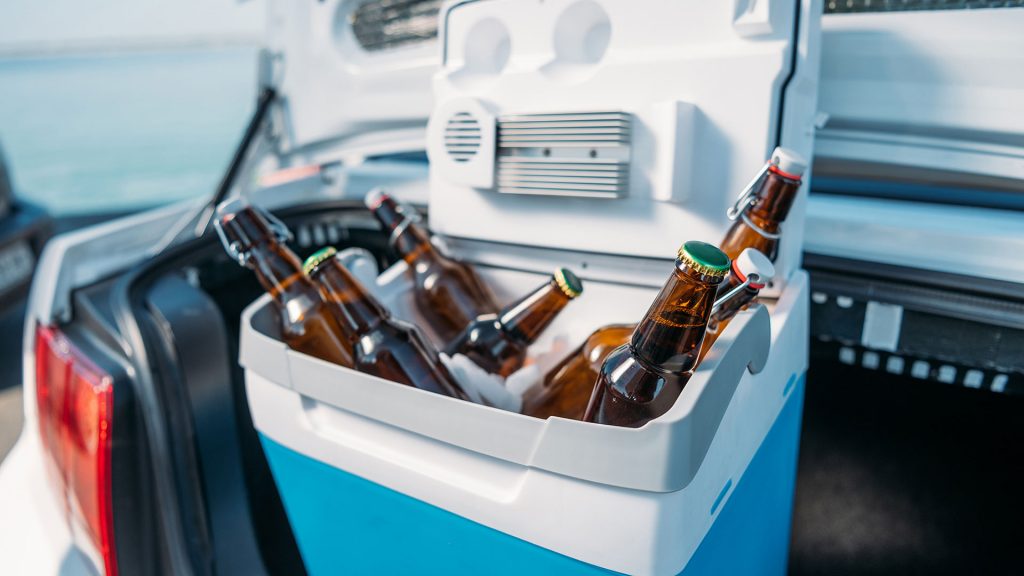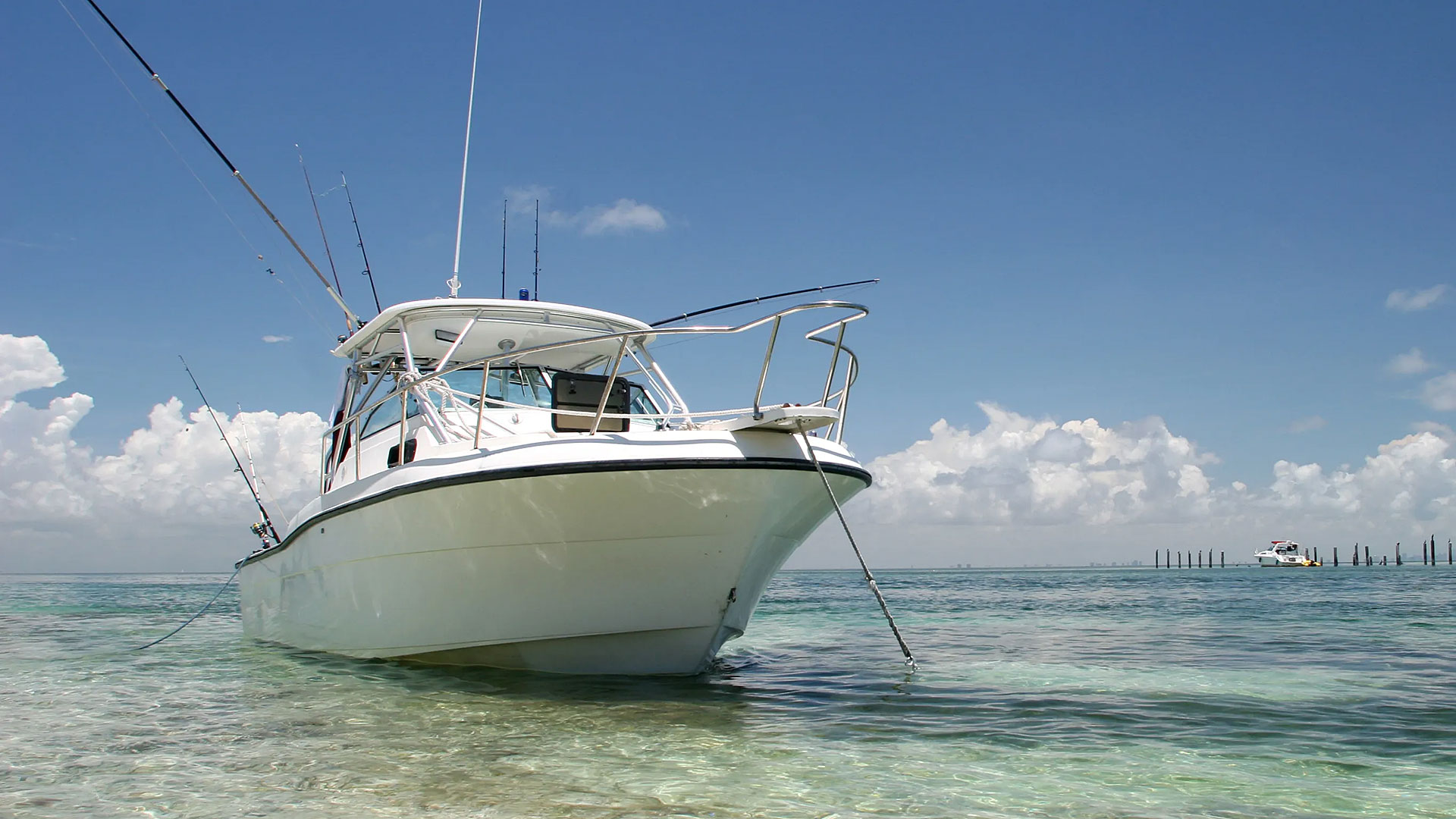What Boat Owners Should Know About Boating Under The Influence
Here in Tampa Bay, boating is a celebrated event. Every weekend the spirit of Florida comes alive on the waters of the Gulf Coast. However, with the privilege of navigating these serene waters comes the responsibility to adhere to state laws, particularly those concerning Boating Under The Influence (BUI). According to Florida law, operating a vessel under the influence of alcohol carries serious legal consequences. Just like automobile drivers, local boat owners need to be informed of their rights and the potential ramifications of a BWI charge. This ensures time on the water remains both enjoyable and lawful.
Understanding Boating Under the Influence Charges: Florida Boating Law Essentials
Definition and Legal Thresholds
In Florida, the concept of Boating Under the Influence is outlined under Florida Statute 327.35. This statute applies the same basic principles as those used for driving under the influence (DUI) on the road. A person is deemed to be Boating While Intoxicated if they operate a vessel while their normal faculties are impaired due to alcohol or drugs. Notably, a blood alcohol concentration (BAC) of 0.08% or higher is recognized as the legal threshold for intoxication.
Rights and Responsibilities of Boaters
Boaters in Florida hold specific rights and responsibilities when it comes to interactions with authorities. If an officer has reasonable suspicion of BUI, they are permitted to stop and board a vessel to conduct an investigation. It is crucial for boat owners to know that refusing a breathalyzer test on the water can lead to immediate consequences, including mandatory fines and the suspension of boating privileges.
Consequences of BUI in Florida
The repercussions of a BUI conviction can be severe and long-lasting. First-time offenders may face fines ranging from $500 to $1,000 and imprisonment for up to six months. Repeat offenses carry stiffer penalties, including higher fines and longer jail time. Additionally, a BUI charge can have lasting impacts on personal and professional life, making it imperative to seek experienced legal counsel to navigate the complexities of Florida boating law.
Legal Definition: What Constitutes Boating Under The Influence (BUI) in Florida?
Understanding Boating Under the Influence (BUI)
Boating While Intoxicated (BWI) in Florida is defined under Florida Statute 327.35, which outlines that operating a vessel while impaired by alcohol or drugs is a legal violation. This statute applies to any watercraft, including jet skis, sailboats, commercial vessels and yachts. A BUI charge occurs when an individual operates a boat with a blood alcohol concentration (BAC) of 0.08% or higher or is under the influence of any chemical or controlled substances that impair normal faculties.
Criteria for Intoxication
Determining intoxication on the water involves several assessments. Law enforcement officers may conduct field sobriety tests similar to those performed on the road. However, these tests are adapted for a marine environment, considering the vessel’s movement and water conditions. Officers also have the authority to use a breathalyzer to measure BAC levels directly. Refusing to submit to a breath test can lead to additional penalties, including fines and mandatory boating safety courses.
Factors Influencing BUI Enforcement
Vigilance in enforcing BUI laws often intensifies during holidays and popular boating events. Officers patrol heavily trafficked waterways to ensure compliance and safety. It is crucial for boat operators to be aware that the effects of alcohol can be more pronounced on the water due to factors like sun exposure and motion, which can exacerbate impairment.
Legal Consequences
The legal ramifications of being charged with a BUI in Florida can be severe. Penalties include fines, imprisonment, and possible suspension of boating privileges. A first conviction leads to a fine between $500 and $1,000 and up to six months in jail. Subsequent offenses carry harsher penalties, emphasizing the importance of sober navigation to avoid legal consequences and ensure safety on Florida’s picturesque waterways.
How Authorities Determine Intoxication on the Water
Observing Boater Behavior
One of the primary ways authorities determine intoxication on the water is by observing a boater’s behavior. Patrol officers in Florida are trained to look for signs of impairment, such as erratic driving patterns, difficulty in maintaining a steady speed, or an inability to adhere to navigational rules. These visual indicators are often the first step in identifying potential Boating Under The Influence (BUI) violations. Officers may also note physical signs of intoxication, including slurred speech, bloodshot eyes, or an unsteady gait when interacting with the operator.
Conducting Field Sobriety Tests
If an officer suspects a boater is under the influence, they may conduct field sobriety tests. These tests, similar to those used for vehicles on land, are adapted for the marine environment. They might include tasks like balancing on one foot or reciting the alphabet backward. While the effectiveness of these tests on the water can vary due to the unstable footing on a boat, they provide valuable insights into the boater’s level of impairment.
Utilizing Breathalyzer Tests
The use of a breathalyzer is a common method for determining intoxication. Florida law, under Statute 327.35(3)(a)(b)(c)1, allows officers to administer a breath test to measure Blood Alcohol Concentration (BAC). A BAC of 0.08% or higher constitutes a BUI violation. Refusal to submit to a breathalyzer can lead to immediate consequences, including license suspension and fines, emphasizing the importance of compliance.
Legal Implications and Your Rights
It is crucial for boaters to know their rights when stopped by authorities. Law enforcement has the right to board and inspect your vessel if they suspect an unlawful activity is taking place. Therefore, understanding your rights during these interactions can protect you from unlawful practices. If faced with a BUI charge, consulting with experienced criminal defense professionals, like those at The Law Office of William B. Bennett, can ensure your rights are defended throughout the legal process.

Rights of Boat Owners: Navigating Law Enforcement Encounters
Understanding Your Rights
When it comes to Boating While Intoxicated (BUI) in Florida, boat owners should be well-versed in their rights, particularly during encounters with law enforcement. The Sunshine State, with its vast waterways, attracts many boating enthusiasts, making it crucial to understand what to expect if stopped by authorities. Under Florida law, officers are permitted to board vessels if they suspect a violation of boating regulations. However, knowing your rights can help protect you during such encounters.
What to Expect During an Inspection
Law enforcement officials are authorized to conduct safety inspections on vessels to verify the presence of required equipment, such as life jackets and fire extinguishers. While these checks are routine, they can sometimes lead to further inquiries if an officer suspects a BUI violation. During inspections:
- Remain Calm: Cooperate with officers, providing requested documentation like registration and identification.
- Understand the Scope: Officers may not search personal areas or items without probable cause or consent.
- Speak Wisely: While cooperating is essential, remember that you are not obligated to answer every question, especially those that may incriminate you.
Handling Suspicions of Intoxication
If an officer suspects intoxication, they may request a breath, blood, or urine test. Florida law considers a Blood Alcohol Concentration (BAC) of 0.08% or higher as a violation of Boating Under The Influence. Refusing these tests can lead to immediate consequences, such as the suspension of boating privileges.
Navigating the complexities of boating law requires a solid understanding of your rights. Should you find yourself facing potential BUI charges, contacting a law firm like The Law Office of William B. Bennett can provide the guidance needed to protect yourself and your interests on the water.
What Are The Consequences Of Boating Under The Influence?
Understanding the Penalties
Boating Under the Influence (BUI) charges come with serious repercussions in Florida, designed to deter unsafe boating practices. Penalties in Florida vary based on circumstances such as prior offenses or blood alcohol content levels. A first-time BUI conviction may result in fines ranging from $500 to $1,000 and imprisonment of up to six months. However, repeat offenders face steeper consequences, including increased fines up to $5,000 and jail time extending to five years, transforming what could be a misdemeanor into a felony. These penalties underscore the gravity of adhering to Florida Boating Law.
License and Privilege Restrictions
In addition to monetary fines and potential incarceration, individuals charged with BUI will face restrictions on their boating privileges. Florida law may impose mandatory completion of a boating safety course, even for seasoned mariners. Moreover, repeat offenders might find their boating licenses suspended or revoked, reflecting the state’s commitment to maintaining safety on its waterways. These restrictions emphasize the privilege of operating a vessel, not a right.
Long-term Implications
Just like a driving under the influence charge, a BUI charge can have enduring impacts on one’s personal and professional life. A criminal record may hinder employment opportunities, especially in sectors reliant on clean legal standing. Moreover, insurance premiums for boaters are likely to skyrocket, as insurers perceive heightened risk. It is crucial to recognize that the consequences of a BUI extend far beyond the courtroom, affecting long-term financial and social stability.
If You Are Facing A Boating Crime, Call The Law Office Of William B. Bennett For Help
Florida law outlines strict guidelines and consequences for those found operating a vessel under the influence. Recognizing your rights as a boat owner can be critical in safeguarding your freedom and boating privileges. The Law Office of William B. Bennett is committed to defending your rights and ensuring you receive fair treatment under the law. If you have been charged with a boating related crime, let us help. Call us today at (727) 821-8000 for a free consultation. You can also contact us on our website here. By staying informed and vigilant, you can enjoy Florida’s beautiful waters responsibly and legally.
Tagged with: Alcohol, Boating Under The Influence, Boating While Intoxicated, BUI, Criminal Defense, DUI
Posted in: Criminal Defense Law, DUI

